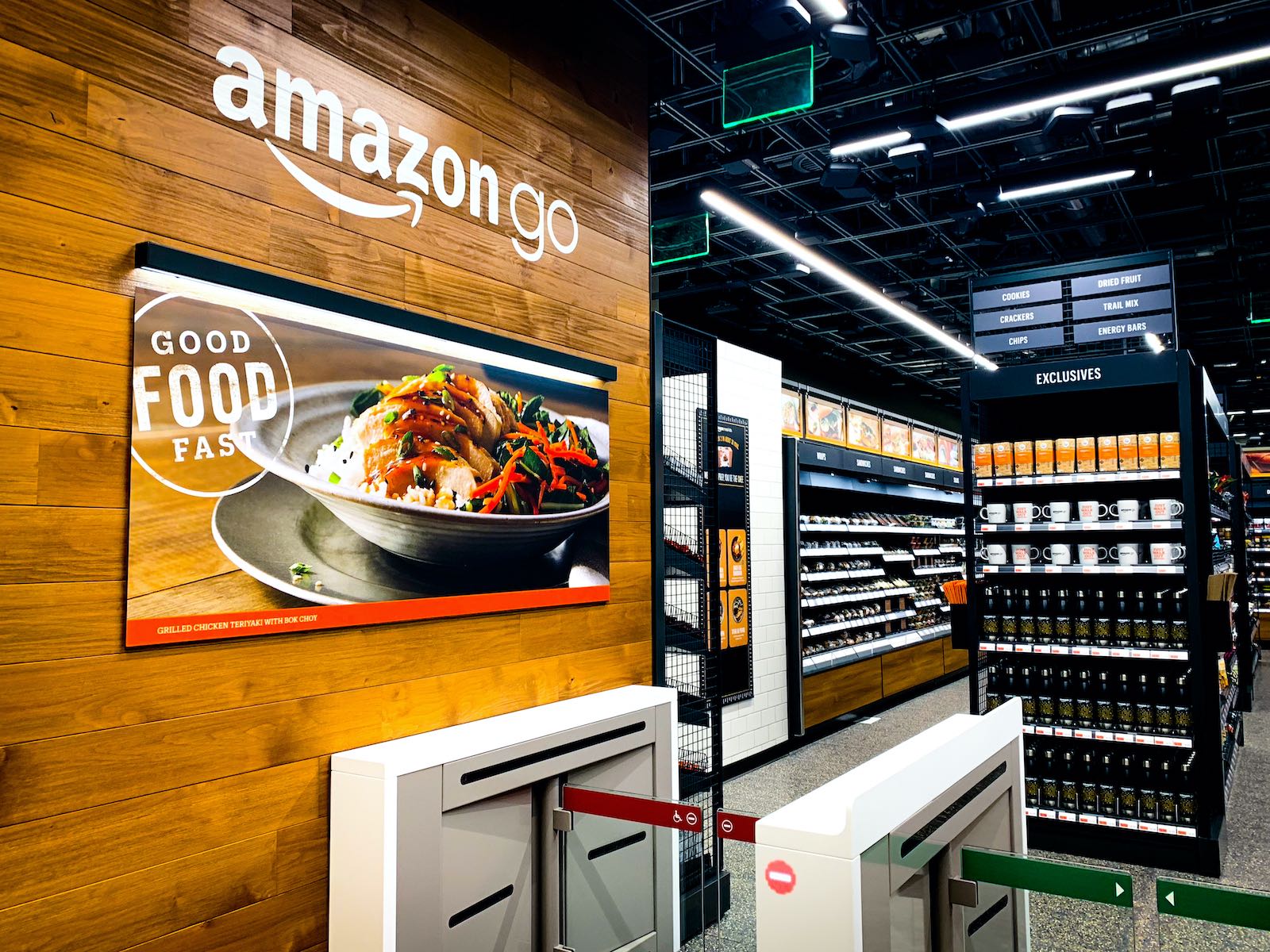There is no better way to social distance than to remove people from the equation. That’s a growing view in a retail industry that is struggling more than most through this extended global crisis, where we have seen a surge of activity in the cashierless or automated retail space. Cashierless retail is not a new idea, but prolonged social distancing policies have shone the spotlight on this and other solutions that will provide public health benefits during the new normal.
It’s almost four years since Amazon launched its cashierless retail program with the opening of its first Amazon Go convenience store near its headquarters in Seattle, and has gone on to open a further 26 automated stores in the US since. In February 2020, the company opened its first full-size Amazon Go grocery store in the Capitol Hill neighborhood of Seattle. At 10,400 square feet, the store is significantly smaller than the average US grocery store (40,000 square feet) but significantly bigger than the Amazon Go convenience-style stores that have pioneered cashierless technology.
Shoppers can walk in and scan a QR code via the Amazon mobile app, then move around the store putting products in their baskets, and just walk out when they are finished. Using a combination of computer vision, sensor fusion, and deep learning, the store monitors which products are picked up by which customer, it can even track when a shopper take something out of their basket and returns it to the shelf. The customer is then charged automatically for the cost of the products they leave with.
The trials had so few negative examples and errors that Amazon started creating synthetic datasets to boost the diversity of the data, the methods they have used to train their drones and warehouse robots. To account for those potential customers without bank accounts or debit cards, and for anyone who cannot access the Amazon Go app because their phone battery is dead, Amazon announced plans to also accept cash payments like traditional stores.
The cashierless process requires no human-to-human interaction whatsoever, and the only employees in the store are there to clean and restock shelves — jobs that may someday be taken over by Alexa enabled robots that can also answer customer queries. However, rather than spurring the usual ‘automation is taking our jobs’ resistance, the cashierless story is wrapped up in the social distancing benefits to society. As we have seen with other solutions, the pandemic has realigned public priorities and brought a positive light to those technologies that support virus mitigation efforts.
Amazon may be pioneering this data-hungry retail space, they are not the only ones getting attention. In Sweden, popular convenience store Pressbyrån opened its first unmanned store in Kungsholmen, Stockholm, on June 11th 2020. “We see a trend in society where people increasingly want to trade on their own terms, now more than ever. With Pressbyrån Go, we can offer convenience in a new way and our ambition is for the concept to grow significantly in the coming years,” says Mariette Kristenson, CEO at Reitan Convenience Sweden.

In April this year, one month after COVID-19 was declared a global pandemic, French automated retail startup Storelift raised $5.54 million to support the development of their “micro-retail” solution. ‘Boxy’ is a shipping container-based autonomous convenience store that can be easily placed in residential neighborhoods without local shopping options. The Boxy micro-stores are cashierless and AI-enabled, which provides a new level of insight into customer behavior and a new level of convenience to local residents.
“We know the products you touch and if it’s too expensive. From that, we can optimize the replenishment, assortment, and doing promotion campaigns in one click. We have the granularity of ecommerce data so we can improve the offer every day. We know what products are working and which ones are not,” said Storelift CEO and cofounder Tom Hayat said. “We can have a real impact on the day-to-day lives of consumers. With our technology, we can give people access to a convenience store at the right price.”
If the AI-enabled shipping container-sized store is micro-retail, then the smart vending machine concept by silicon valley startup Bodega must be nano-retail. The cupboard-sized automated store uses similar cashierless technology to Storelift and Amazon to recognize which items are taken by the customer when they open the cabinet using a smartphone app. Bodega takes convenience to another level, promising to put a “stored” on every floor of large commercial buildings, for example.
“The vision here is much bigger than the box itself,” said Bodega co-founder Paul McDonald. “Eventually, centralized shopping locations won’t be necessary, because there will be 100,000 Bodegas spread out, with one always 100 feet away from you.”
Bodega may just be reinventing the wheel but the increasing use of cashierless technology at all scales is beginning to blur the lines between a large grocery store and the office vending machine. Solutions like Boxy, by Storelift, create a container-sized vending machine you can walk into, thereby providing a wider range of products than Bodega but not as conveniently located. Amazon, meanwhile, is targeting the full grocery store scale with its Go solution. It seems that AI-enabled cashierless technology is creating a smart store concept for every space.
As we have seen across the business world, the COVID-19 pandemic has accelerated trends that seemed much longer-term and completely stopped many others that were emerging or established. Cashierless technology makes sense for major retailers in many markets, allowing them to scale their stores for the shoppers, collect unprecedented levels of customer data, and massively reduce labor costs. With enough momentum, this cashierless revolution has the potential to fundamentally change the grocery and convenience retail space forever.
Follow to get the Latest News & Analysis about the Competition in your Inbox!



